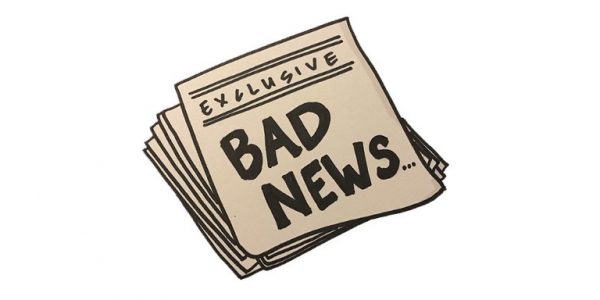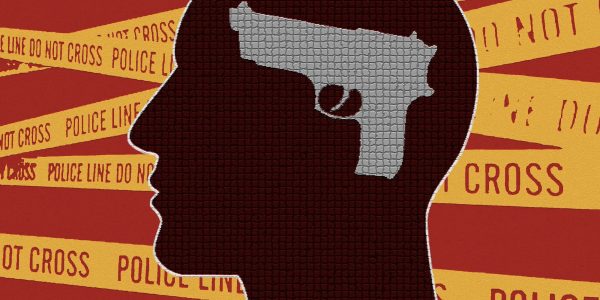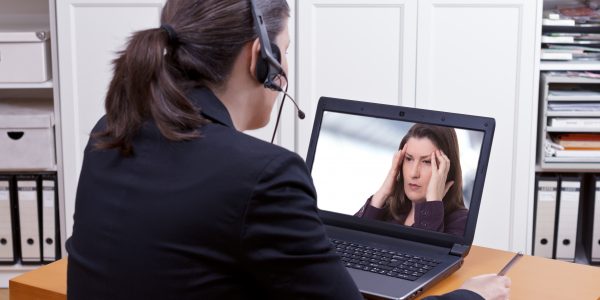LISTEN TO THIS ARTICLE:
This is the first in a series of articles exploring healthcare worker burnout, a quiet crisis that has been brought to light by the COVID-19 pandemic.
Read the second article in the series here.
MD: Medical Darkness
On Sunday, April 26, 2020, Dr. Lorna M. Breen, medical director of the emergency department of New York-Presbyterian Allen Hospital, took her own life. Working in the epicenter of the COVID-19 pandemic, she witnessed tremendous suffering and death for many weeks.
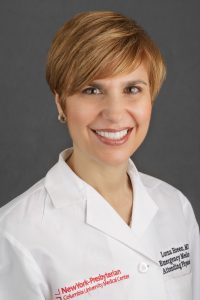
While the details about the cause of her suicide are unknown, it is hard not to think there is a connection to stress related to her work.
For years there has been a kind of dark secret among doctors and other healthcare workers: trying to do their jobs often leads to frustration, disappointment, demoralization, and burnout. In many cases, it is a relentless battle that progresses to depression and even suicidality. Now they are on the front lines of a pandemic caused by a novel virus with no effective treatments.
Many may be unaware that Dr. Breen was one of the hundreds of doctors who die by suicide every year. It is hard to know the exact numbers, but the best estimates are that America loses about one doctor to suicide every day. That’s nearly equal to 3 graduating medical school classes each year.
Suicide in healthcare workers
Physicians in America have near double the average rate of suicide compared to the general population. What’s more, when doctors attempt suicide, they are nearly twice as likely to die as they have access to more lethal methods. Given that our nation has had a shortage of doctors even before the start of the coronavirus crisis, it is pretty astounding that we hear so little about this subject.

It’s not just doctors, either. Two days before Dr. Breen’s death, John Mondello, a rookie Emergency Medical Technician (EMT) from the New York Fire Department, perished of suicide as well. Nurses, EMTs (like Mr. Mondello), and other healthcare personnel working in areas where the pandemic has hit the hardest have had to bear witness to more sickness and death than ever. It’s hard to imagine the levels of stress a person may experience working on the front lines of emergency healthcare, especially now.
Friends and family of both Dr. Breen and Mr. Mondello said that neither had a history of depression or mental illness.
For years healthcare workers have reported burnout, with associated symptoms of depression and suicidality. Estimates vary widely, but it seems about 15-30% of medical students, residents, and doctors have symptoms of depression. Data about nurses is even more limited, but a few studies show the risk of suicide among them is about 50% higher than the national average.
Many may be unaware that Dr. Breen was one of the hundreds of doctors who die by suicide every year… The best estimates are that America loses about one doctor to suicide every day. That’s nearly equal to 3 graduating medical school classes each year.
Conscientious achievers
Those who choose to go into the helping professions tend to have several defining characteristics in common. First and foremost, they care about helping others and saving lives. They are goal-oriented and self-driven, often perfectionists. They are likely to hyper-focus on their defeats while dismissing successes. When they have to deliver bad news or when a patient in their care has a poor outcome, they can experience it as a personal failure. They put enormous pressure on themselves to do not only their personal best but also the absolute best. To be sure, the need to persevere through many years of grueling training in itself selects out those who have these qualities. While such traits make these individuals well suited to their jobs, they can also put them at higher risk for burnout. They are only human, after all.
Lunch is not a guarantee around here.
Every student knows that the recipe for success in medical school is pushing hard, working insanely long hours, and never complaining. Medical school and residency do not place much, if any, value on self-care. Those who resist this culture may be viewed as weak and not up to the job. This type of work environment has created a boiling crisis of burnout.
But we all have stressful jobs, right? Plenty of other careers are high pressured and intense to be sure. The thing that sets healthcare and other front-line work apart is the constant exposure to illness, suffering, and death. Furthermore, healthcare workers must shoulder the stress of hectic environments where unexpected and unpredictable things are happening all the time. As one doctor said, “lunch is not a guarantee around here.”
Driving on empty
Healthcare worker burnout comes from long-term, nearly continuous stress at one’s job. People experiencing burnout become pessimistic about their work, which they feel is sapping their energy. They can begin to feel a sense of betrayal, as if what they are doing is not appreciated or valued, so they become emotionally distant. Ultimately, they become less confident in their ability to do good work, and their performance suffers.
Depression goes hand-in-hand with burnout. As people become more burned-out, they will display more depressive symptoms, though not all of them will meet the criteria for a diagnosis of Major Depressive Disorder. The numbers are startling: Close to half of physicians report feeling burned-out. About one in ten has had significant depressive symptoms, and 4% have Major Depressive Disorder. Fourteen percent have considered suicide. The data for nurses are also concerning. Over 15% of nurses report burnout, 41% feel emotionally distanced from their work, and half are considering quitting.
Asking for help
For doctors, admitting that one is feeling burned-out, depressed, or suicidal, and asking for help are huge hurdles. Two-thirds of doctors who feel burned out or depressed have not sought help and do not plan to do so. Aside from not wanting to appear inadequate to peers and patients, some said they are concerned it could jeopardize their careers, reputations, and even medical licenses. As a result, those that seek help often look for it far outside their network, pay cash rather than use insurance, and have even used fake names.
All of these factors made a career in healthcare hard enough before the coronavirus pandemic. Now, to live and work that way now is unsustainable. The pandemic is adding tens of thousands of new patients daily to an already stressed healthcare system, creating an epic calamity for which we were woefully ill-prepared.
One of the most stressful aspects of this onslaught is how little we know about this new virus. Healthcare workers are no strangers to confronting illnesses, but generally, they know those diseases well and know how to treat them. COVID-19 is unfamiliar, and there are very few options for treatment. For the sickest patients, doctors and nurses are mostly helpless in fighting the virus itself. The struggle to effectively treat severely ill patients is especially hard on people who pride themselves on saving lives.
The pandemic is adding tens of thousands of new patients daily to an already stressed healthcare system, creating an epic calamity for which we were woefully ill-prepared.
Slippery pedestal
So, are healthcare workers, “heroes”? Most would agree that by definition, they are. Individuals who put themselves in harm’s way to save the lives of others are most certainly heroes. Cheers of gratitude from windows, drive-by parades, and flyovers are ways that people have tried to say thank you. But being thought of as a hero can be a double-edged sword.
Being placed on a pedestal can add pressure to an already formidable situation. For some healthcare workers right now, it is hard to feel like a hero when they are witnessing people die in front of them every day. It shatters the belief that they are “lifesavers,” ones that cure disease and ease suffering. Being individuals who are already hard on themselves, the term “hero” can make some feel like frauds, if they cannot live up to this expectation. They may feel like the pedestal is crumbling beneath them. Ironically, being thought of as a hero can cause more stress for some, and they become harder on themselves than before.
Bedside matters
Like most of us, healthcare workers struggle with physical isolation due to coronavirus. Physical contact with patients has to be limited because the disease is so contagious and can spread through hospitals like wildfire. Workers must be armed with personal protective equipment (PPE) to protect themselves and other patients from becoming infected. Human touch has long been a crucial element in healing, and these barriers between doctors and nurses and their patients adds to the struggle for all involved.
There are special procedures for putting on and removing PPE for it to work correctly, and for workers to ensure that they not contaminate themselves in the process. The removal and re-application of all of this PPE every time they need to use the bathroom, take a drink of water, or eat a snack is time-consuming and stressful. In some cases, PPE, which might be contaminated, must be reused because of shortages.
In addition, burned-out healthcare workers must avoid contact with their families, for fear of infecting them. Some are sending their families away to stay elsewhere while they stay alone in their primary home. Others are staying in spare bedrooms, basements, or renting hotel rooms for extended periods. Such isolation at work and home makes it harder to recover from the stress of the job and starves people of necessary human connection.
Such isolation at work and home makes it harder to recover from the stress of the job and starves people of necessary human connection.
Unfortunately, the quiet crisis of healthcare worker burnout has gone mostly unnoticed. However, the COVID-19 outbreak has amplified existing stress and shone a light on the many cracks in America’s healthcare system. Perhaps this experience will be a catalyst for change, ultimately leading to better patient care and happier caregivers
Advice for healthcare workers
We know that healthcare workers generally tend to neglect their self-care. So we offer them these words of advice:
- We need you. We need your skills, dedication, and compassion, and we are grateful for the work you do. Therefore, we also want you to take care of yourself! Remember, you cannot fill the cups of others unless your cup is full, too.
- Communicate about your own emotional needs with coworkers, family, and close friends.
- Even if you think you are doing fine, make a regular habit of checking in with a close confidant. You probably have more to talk about than you think.
- Savor whatever small breaks you can manage to find during your workday. Just because you take breaks doesn’t mean you are broken.
- Most of all, go easier on yourself.
How can we help with healthcare worker burnout?
If you don’t work in healthcare, but know someone who does, and want to help, here are some ideas:
- Consider offering to do some shopping, prepare a meal, or help out with other chores (while practicing safety guidelines for yourself). This kind of help can free up some of their off-work time and ease some of their burdens.
- Offer a listening ear. Rather than ask for medical advice or opinions, recognize that they are human and acknowledge how this time must be especially difficult for them. Ask if they would like to talk about it.

 Learn
Learn Stories
Stories ID Symptom
ID Symptom News
News Find Help
Find Help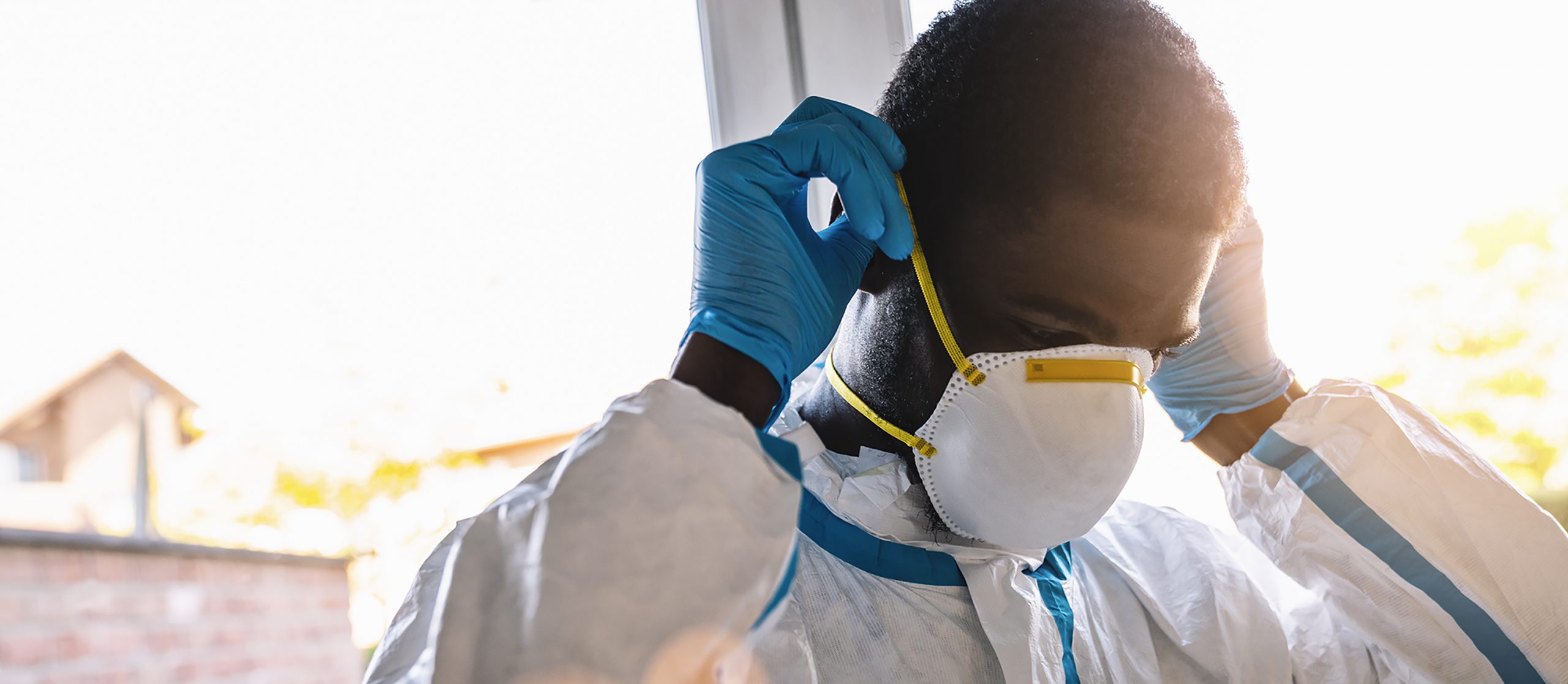
 Share
Share
 Share
Share
 Share
Share
 Share
Share

